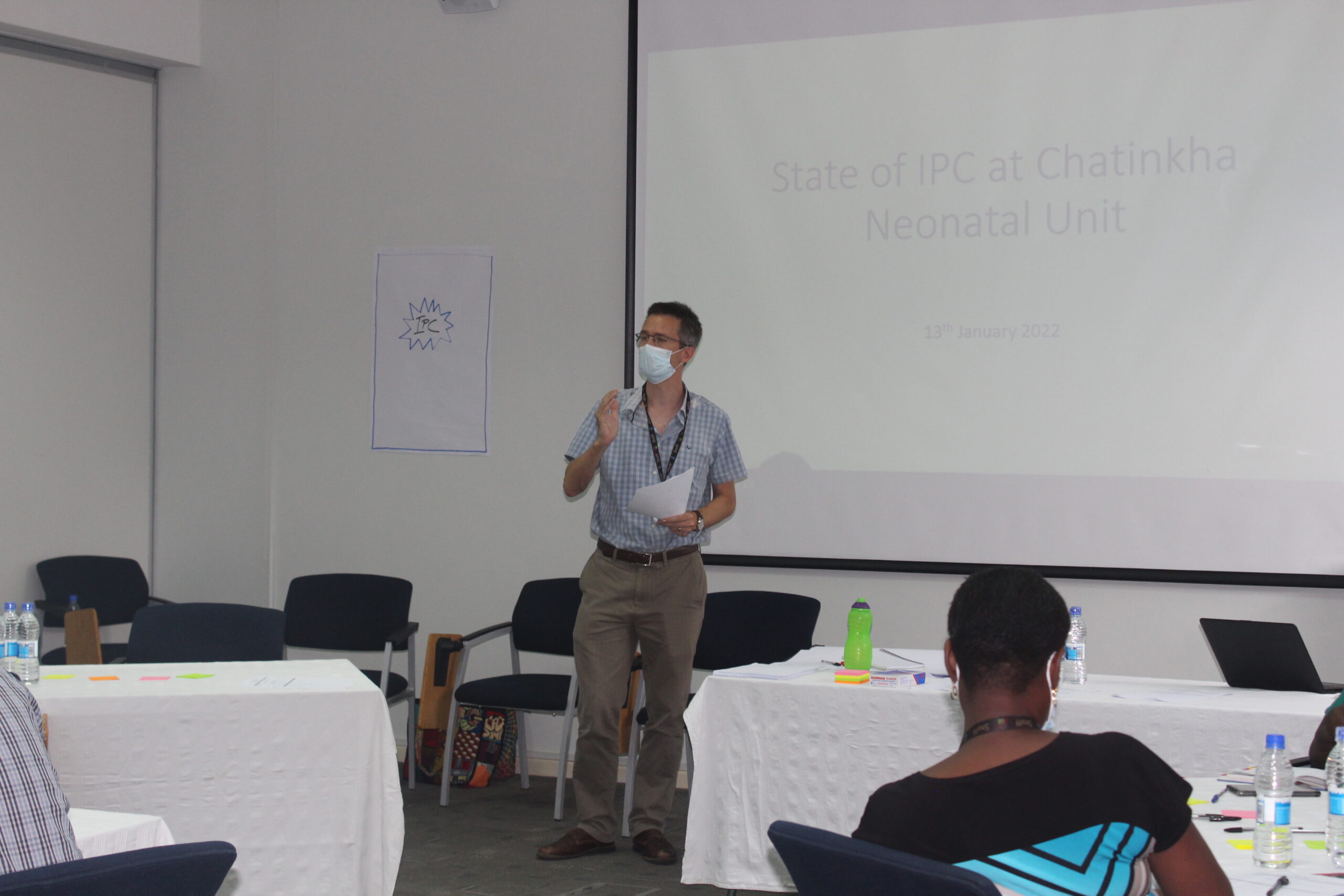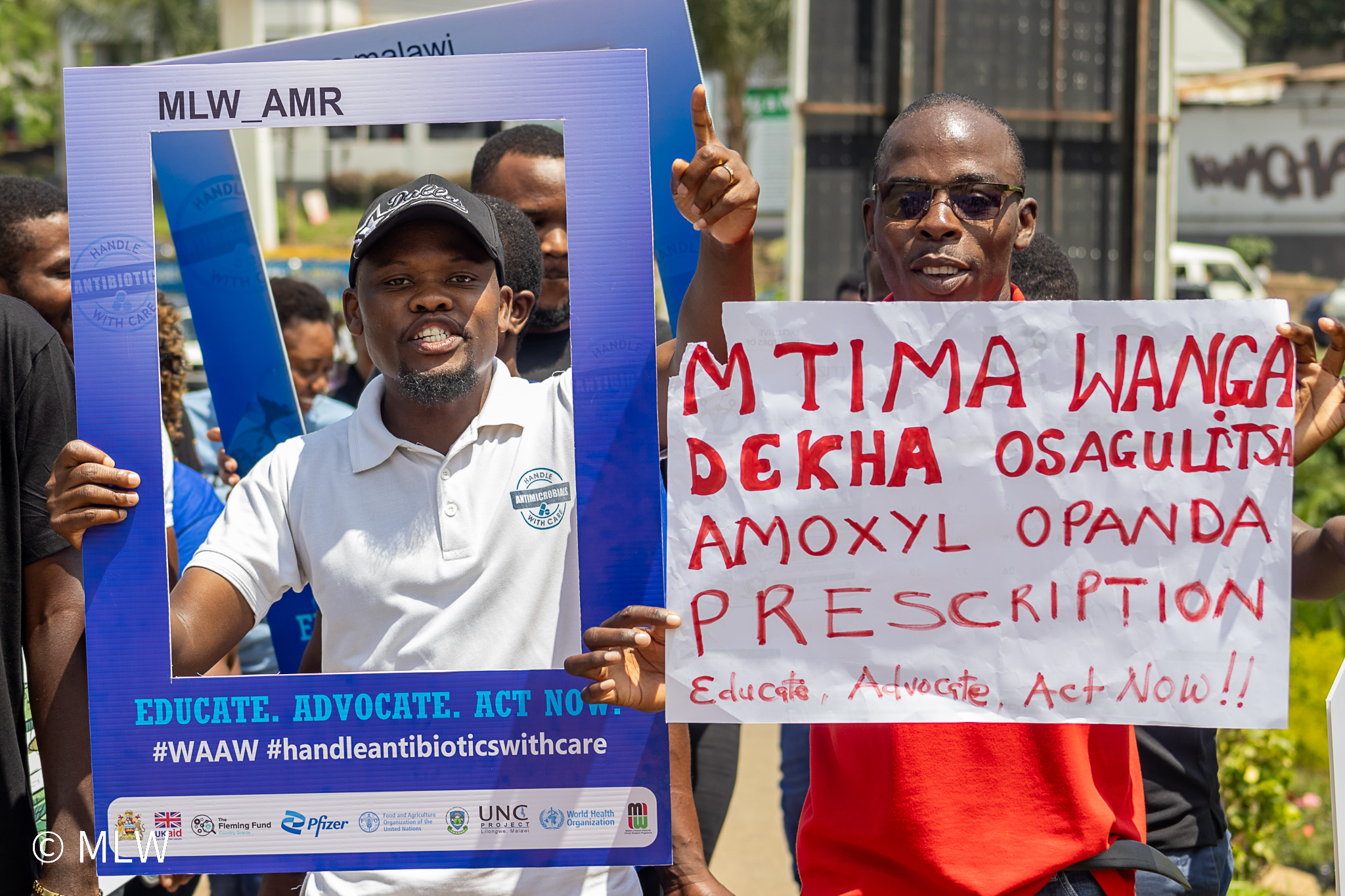MLW Ph.D. student and doctor at QECH Paediatrics Ward Oliver Pearse has said that it is helpful to discuss infection prevention control in neonatal care to protect and save neonatal lives because they are neonates are more susceptible to infections.
Pearse said this on 13 December during a discussion on ‘Infection Prevention Control (IPC) at Chatinkha Nursery’ at MLW premises in Blantyre.
MLW Ph.D. student and doctor at QECH Paediatrics Ward Oliver Pearse has said that it is helpful to discuss infection prevention control in neonatal care to protect and save neonatal lives because neonates are more susceptible to infections.
Pearse said this on 13 December during a discussion on ‘Infection Prevention Control (IPC) at Chatinkha Nursery’ at MLW premises in Blantyre.
The discussion was conducted to provide a platform for MLW and QECH to discuss infection control at Chatinkha Nursery to improve infections in neonates.
The meeting was attended by doctors, nurses, senior management, and staff from both MLW and QECH.
During the discussion, MLW’s Bacterial and Drug-Resistant Infections Research Group lead Nick Feasey said his group will continue to discuss and gather more evidence on infections to come up with locally applicable interventions and ideas that can combat the infection rate.
“There are concerns around infection prevention and control which mostly affect neonates. It is important to meet like this for us all to generate ideas and enhance implementation of infection prevention measures,” said Feasey
Matron for Chatinkha Ward Theresa Tewesa said, “Infections in the neonatal wards are something which we are all trying to address. For instance, congestion in the wards, lack of enough hygiene and environmental care equipment decelerate our progress. This discussion has helped us to share the challenges and to brainstorm on the solutions of the IPC problems that we are facing,” Tewesa said.
From the discussion, some of the interventions to reduce infections are hand hygiene, environmental care, equipment care and management, ward arrangements, and health
A report by United States Agency for International Development (USAID) updated on 22 December 2021, indicates that Malawi has one of the highest maternal mortality ratios globally, currently estimated at 439 maternal deaths per 100,000 live births. This neonatal mortality is often caused by birth asphyxia, premature birth, and infection, and is estimated at 29 per 1,000 live births.



